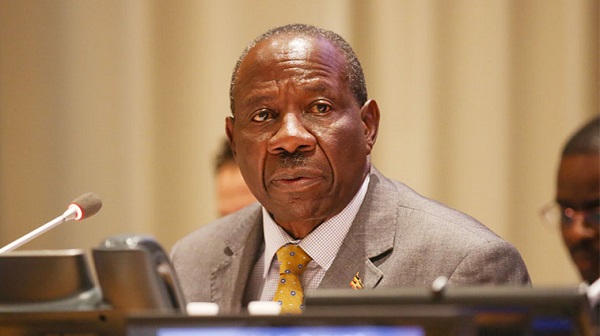
The contract that KRA had with SICPA for the supply of the duty stamps was annulled, but KRA appealed the ruling and on 11 May received permission to continue with the implementation of the excise goods system.
However, Christopher York, SICPA’s representative in Uganda and Kenya said the company would fulfill its tax obligations, a response that manufacturers said could only be confirmed with making the contract public.
Lessons from other countries
Successful implementation of Digital Tax Stamps could see the east African nation follow Tanzanian’s and Kenyan’s footsteps that have already done so in the region.
Tanzania introduced the Digital Tax Stamps in September this year for both local and imported products amidst protests from traders while Kenya did so in 2003, initially covering tobacco products alone and expanded it to wines and spirits, a sector that had presented challenges in tax management and also public health risk associated with illicit alcohol, four years later.
John Njiraini, the Commissioner General at the KRA told his quests during the 2018 Tax Stamp Forum in Nairobi in May this year that while tax stamp technology is now well developed, its effectiveness especially in combating tax evasion, depends to a large measure on the extent to which, such technology is infused into other tax compliance processes.
“There is need therefore to look at tax stamp systems not in isolation but as part of the holistic process of addressing tax compliance, and hence as part of the wider technology infrastructure built to support tax compliance,” he wrote for the Standard newspaper, Kenyan-based daily.
He said the present practice where tax stamp systems are developed as standalone platforms, may not in the long run effectively deliver the kind of holistic solutions required for tax administration. After all, he said, detecting evasion of excise taxes without having commensurate interventions to address other tax streams equally affected is not only narrow minded but also possibly as well self-defeating.
“There is therefore a case for strong partnerships between existing tax system developers and those involved in developing tax stamp systems, in order for full value to be delivered to customers,” he said, adding that KRA intends to deepen its relations with key players in the excise product control chain including the World Health Organization through the Framework Convention on Tobacco Control (FCTC) Protocol which calls for implementation of global track and trace systems for tobacco products.
However, Ian Rumanyika, the manager for public and corporate affairs at URA said the reason behind the introduction of Digital Tax Stamps is mainly to help increase government revenue and fight counterfeit products on the market.
“One of the primary goals of the system is to close any existing gaps in excise tax collection, which means addressing both illicit trade as well as under-declaration,” he said.
He said the new system is intended to monitor and control the production and importation of all excisable goods, not just beer, and to give URA data to ensure and verify full and fair taxation of all products that are subject to excise taxation.
Way forward
The manufacturers propose that the taxman could first carry out a free trial to ascertain its feasibility prior to rolling out to all the products. Meeting Coca Cola Beverage Africa Uganda executives in October this year, President Museveni, said the government’s planned introduction of Digital Tax stamps are only meant for imported items, not locally manufactured products.
“We only introduced them so that we can stop smuggling,” Museveni said.
Quick facts about SICPA controversies
May 2015- Brazilian Police raids the country’s federal tax agency and national mint as part of an investigation in a fraud scheme that allegedly channeled US$32.26 million in bribes to finance ministry executives. The public servants were allegedly paid bribes to give the Swiss firm multi-billion service contract to monitor the production of cold beverages such as beer and soft drinks.
May 2018- Kenya’s High Court ruled that the Kenya Revenue Authority had not adequately followed constitutional provisions in terms of public consultation when imposing excise duties on bottled water, juices, soda and other non-alcoholic beverages.
The contract the KRA had with SICPA for the supply of the duty stamps was annulled, but KRA appealed the ruling and in May received permission to continue the implementation of the excise goods system. KRA was to pay Ksh+ 27.68 billion for that financial year for services rendered.
In the Kingdom of Morocco, a SICPA contract raised concerns when it appeared than the price it was offering for tax stamps were 10 times higher than the price for the same service in Turkey. The company was said to have been giving out bribes to the leaders in the incumbent party during campaigns.
 The Independent Uganda: You get the Truth we Pay the Price
The Independent Uganda: You get the Truth we Pay the Price



Great news